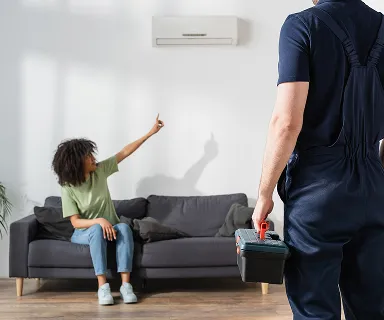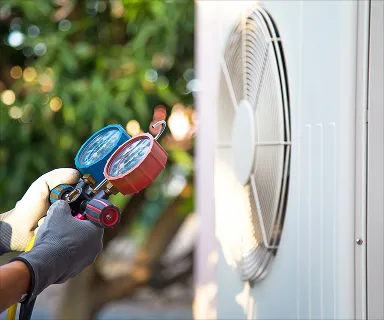
Choosing the right HVAC system for your Cape Coral home is about more than just cooling—it’s about efficiency, durability, and year-round comfort. Florida’s high humidity, extreme heat, and hurricane-prone climate create unique challenges that make selecting the right system critical. A poorly chosen HVAC unit can lead to higher energy bills, frequent repairs, and inconsistent comfort, while the right system can keep your home cool and efficient for years.
This guide will walk you through the key factors to consider, the pros and cons of different HVAC options, and common mistakes to avoid so you can make the best decision for your home.

Image caption goes here
Before choosing an HVAC system, it’s important to understand how Florida’s weather affects performance and efficiency. Cape Coral’s climate presents the following challenges:
Considering these climate factors ensures that your HVAC system can handle Florida’s demanding conditions while maintaining efficiency.
There are several types of HVAC systems, each with its own advantages and drawbacks. Choosing the best one depends on your home’s size, layout, and budget.
A central AC system uses ductwork to distribute cooled air throughout the home. It consists of an outdoor compressor/condenser unit and an indoor evaporator coil that cools the air.
Best for: Homeowners who need to cool multiple rooms efficiently and already have ductwork in place.
A ductless mini-split consists of one or more indoor air handlers connected to an outdoor condenser unit. Instead of ducts, it delivers cool air directly to specific zones in the home.
Best for: Homes without ductwork, room additions, or homeowners looking for energy-efficient cooling in specific areas.
A heat pump can both cool and heat your home by transferring heat instead of generating it. In Florida’s warm climate, air-source heat pumps are a great alternative to traditional AC units.
Best for: Homeowners looking for a dual-purpose system that can cool efficiently in summer and provide affordable heating in winter.
A packaged HVAC system contains both cooling and heating components in a single outdoor unit, often installed on the roof or near the foundation.
Best for: Homes with limited indoor space or homeowners looking for a compact system.
Once you have decided on a system type, consider the following factors to ensure you get the best performance and efficiency.
An HVAC system must be properly sized for your home. A system that is too small will struggle to cool your space, while a system that is too large will short cycle, reducing efficiency and causing temperature imbalances.
Tip: Work with an HVAC professional to calculate the proper cooling load based on square footage, insulation, and window placement.
The Seasonal Energy Efficiency Ratio (SEER) measures an HVAC system’s efficiency. In Florida, where AC units run often, a SEER rating of 16 or higher is recommended for lower energy costs.
Modern HVAC systems come with smart technology that improves efficiency and convenience. Features to look for include:
Upgrading to an energy-efficient, smart system can provide better comfort control and long-term savings.
Florida homes need HVAC systems that can withstand hurricane-force winds and power surges. Consider:
Installing a hurricane-resistant system ensures your HVAC can handle Florida’s extreme weather.
Choosing an HVAC system is a major investment, and mistakes can lead to long-term problems. Avoid these common pitfalls:
Working with a trusted HVAC professional can prevent costly mistakes and ensure the system is installed correctly.
Choosing the right HVAC system for your Cape Coral home requires careful consideration of efficiency, durability, and climate challenges. Whether you opt for central AC, a ductless system, or a heat pump, selecting a properly sized, high-SEER-rated unit with modern features will enhance comfort and lower energy costs.
If you need help selecting and installing the best HVAC system for your home, 10-8 HVAC is here to help. Our team specializes in energy-efficient cooling solutions designed for Florida’s unique climate.
Contact us today for expert recommendations and professional installation.

A running AC that fails to cool isn’t just frustrating—it’s a sign that something is...

A running AC that fails to cool isn’t just frustrating—it’s a sign that something is...